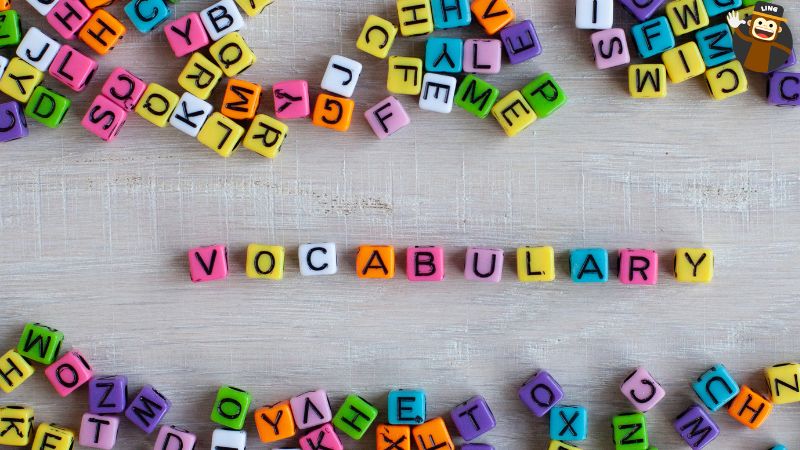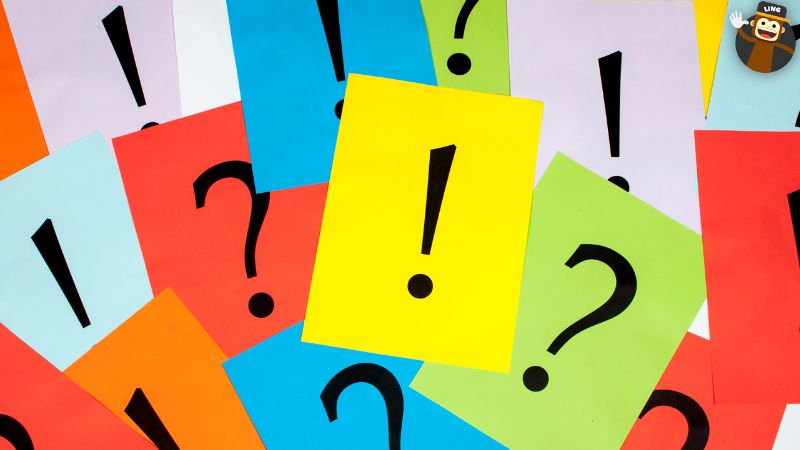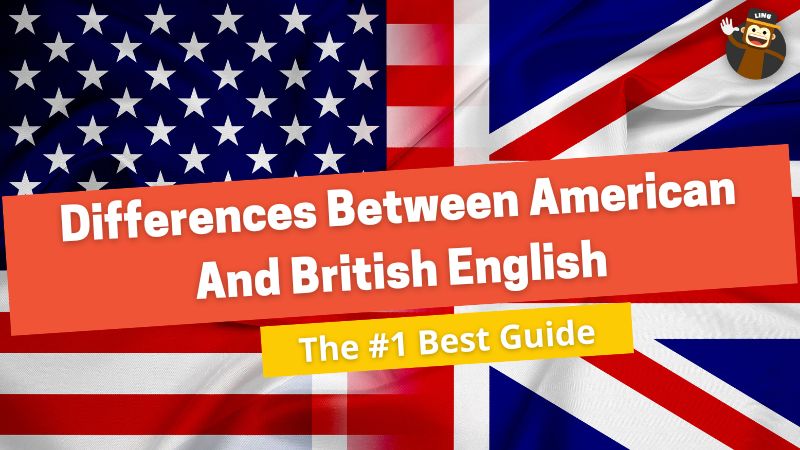Are you learning English but are stuck wondering why there are some differences between British English and American English? Yup! You are right. American and British English have some variations that range from pronunciation to grammar. These variations, although subtle, make both languages unique and interesting. However, although these variations exist, both speakers can still understand these without any hassle.
I grew up speaking British English, so it was both a cultural and mental shock when I discovered that pants (female underwear in British English) were the American version of trousers when I realized that I am not meant to stress the ‘t’ in water.
In this post, we look at the major differences between American and British English and what to take note of.
Major Differences Between The British And American English

There are major differences we will be taking note of in this article. They are
- Vocabulary
- Grammar
- Spelling, and
- Punctuation
If you are ready for that, keep reading below!
Vocabulary Differences
The major element that distinguishes British and American English is the vocabulary differences. Different words are used for the same item, and some have different meanings in American English and British English. For example, an American person will say truck while a British person will prefer to say lorry. While there is a wide list of different American and British words, here are a few differences.
| American English | British English |
| apartments | flats |
| vacation | holiday |
| college | university |
| sweater | jumper |
| mailbox | postbox |
| cookie | biscuit |
| mad | angry |
| french fries | chips |
| suspenders | braces |
| drapes | curtains |
| elevator | lift |
| corn | maize |
| can | tin |
| railroad | railway |
| zipper | zip |
| windshield | windscreen |
| cab | taxi |
| candy | sweets |
| muffler | silencer |
| scotch tape | sellotape |
| restroom | public toilet |
| rubber | condom |
| gasoline | petrol |
| sick | ill |
| diaper | nappy |
| crazy | mad |
| movie | film |
| wreck | crash |
| trashcan | dustbin |

Grammar Differences
There are a few grammar differences in both American and British English. Let’s take a look at them.
Collective Nouns
Collective nouns are used to refer to a group of people or things. For example, the school of fishes is swimming, or the band is really good. In American English, collective nouns are singular.
However, collective nouns can be singular or plural, although the plural form is usually used. The brits accept singular and plural forms. So, it can be the school of fishes are swimming, or the band is really good.
Auxiliary verbs – Shall And Need
Auxiliary verbs, also known as helping verbs, are used in sentences to ‘help’ the main verb.
In British English, Shall is often used in sentences. For example, ‘Shall we go now?’ or ‘I shall go there tomorrow. However, in American English, they prefer to use verb forms like should or will in sentences. They believe that shall sound too formal. So, they would rather say, ‘Should we go now?’ or ‘I will go there tomorrow.
Needn’t is commonly used in British English but is rarely used in American English. An American person will feel more comfortable saying ‘You don’t need to go to the supermarket tomorrow’ whit a British will prefer saying ‘You needn’t come to the supermarket tomorrow.’
Present Perfect and Past Simple
In British English, people prefer to use a present perfect for a recent past action that is still relevant to the present. For example: ‘Don’t bother him. He has already apologized.’ For American English, a present perfect is acceptable, but Americans will rather go for a past simple. For example: Don’t bother him. He already apologized.
Other Examples
This is always common with words like already, yet, and just.
| American English | British English |
| I’ve just had a bath | I just had a bath |
| I’ve already seen him | I already saw him |
| Have you finished drawing yet? | Did you finish drawing yet? |
Past Participle – Get
American English prefers to use ‘gotten’ as the past particle of get but in British English, got serves as the past participle of get. So, if an American will say, ‘She’s gotten much better,’ while a brit will say, ‘She’s got much better.‘
However, when it comes to using got/gotten in relation to the possession of something. Both American and British English use got.
- British: I’ve got some money
- American: I’ve got some money
Forms For Expressing Possession
When expressing possession, there are two forms you can use. The Have and Have got. Examples are;
- Do you have a bottle
- Have you got a bottle
- He hasn’t got money
- He doesn’t have any money
In British English, have got is generally preferred (He hasn’t got any money), while have is much more preferred in American English (He doesn’t have any money).
Past Tense Verbs
Another notable difference between the British and American English is the past tense verbs. The past tense of the word Learn is learned in American English, while the past tense of Learn is learnt or learned in British English. Other examples are:
| American English | British English |
| dreamed | dreamt |
| leaned | leant |
| burned | burnt |
| spoiled | spoilt |

Punctuations
While this may be a mild difference, it is worth taking note of. In America, double quotations are used for initials, while a single quotation mark is only used for a quote inside a quote. In the UK, the opposite is the right way.
Also, In British English, commas and periods are placed outside quotation marks, while these are placed inside the quotation marks in American English. Lastly, British and American English accepts the serial comma, but Americans are more liberal with its use.
Spelling
When it comes to how words are spelled, British and American English have unique ways. Thanks to Noah Webster. Yes, I mean Webster’s dictionary. Okay, let me explain.
When Noah Webster compiled words, he realized the extra letters in British English. He eliminated them, leading to the main difference between American and American word spelling.
Let’s take a look at these differences
| American Engish | British English |
| traveled | travelled |
| pediatric | paediatric |
| liter | litre |
| center | centre |
| license | licence |
| offense | offence |
| leukemia | leukaemia |
| color | colour |
| paralyze | paralyse |
| analyze | analyse |
| neighbor | neighbour |
| humor | humour |
| favor | favour |
There You Have It!
Whew! What a knowledgeable ride through the significant differences between American English and British English Words. Both countries speak a common language and have some cultural relations, but the contrast makes them unique. So, if you are wondering about the best apps to learn English, let me introduce you to Ling App.

Learn Languages With Ling App
Want to learn more English Language? The Ling App is a language learning app that transforms complete beginners into fluent speakers with its functional features that make learning a new language enjoyable and worthwhile. You get access to interactive quizzes, short but useful grammar lessons, retentive exercises, flashcards, and other useful features that help you learn over 60+ languages.
What are you waiting for? Download the Ling App today on Play Store or App Store




















